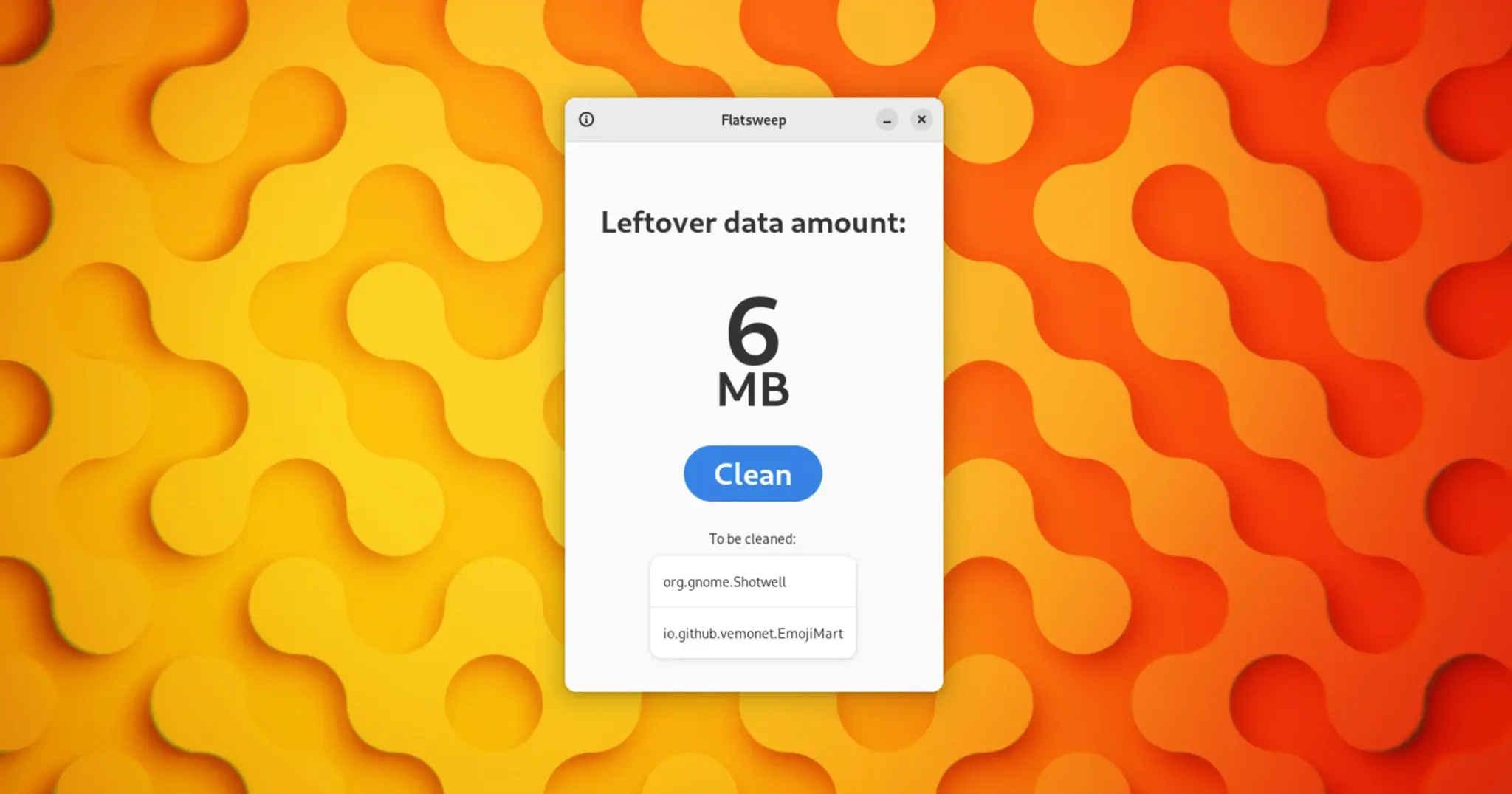
If you uninstall Steam or Firefox, it can absolutely be gigs, just FYI. Very nice tool to have.

How is this different from
flatpak uninstall --unused
?

As far as I can tell this seems to be for deleting application data (
~/.var/app/*), whereasflatpak uninstall --unusedis for uninstalling runtimes that are no longer needed.
This app is more equivalent to
flatpak uninstall --delete-data
But this doesnt work once uninstalled. This really is an isse with flatpaks.

Because there are distros, like fedora for one, that have flat packs installable by the likes of discovery on KDE that doesn’t require CLI useage for install or uninstall of flatpacks

For fun, a shell script for the same functionality:
#!/bin/sh br="$(printf "\n")" # Obtain a line-break # If RM_CMD is unset, use trash-cli if [ -z ${RM_CMD+y} ]; then RM_CMD="trash"; fi # List of apps. The leading br is necessary for later pattern matching apps="$br$(flatpak list --columns=application)" || exit 1 cd ~/.var/app || exit 1 for app in *; do case "$apps" in *"$br$app$br"*) ;; # Matches if $app is in the list (installed) *) printf 'Removing app data %s\n' "${app}" "$RM_CMD" "./${app}" ;; esac done(May eat your files)

Pretty complicated
#!/bin/bash # List contents of ~/.var/app/ files=$(ls -1 ~/.var/app/) # Loop through each element of the folder for file in $files; do # Set the name as a variable app_name="${file##*/}" # Check if a flatpak app of that name is installed if ! flatpak list 2> /dev/null | grep -qw $app_name; then # Ask the user to delete the folder read -p "The app $app_name is not installed. Do you want to delete its folder? (y/n): " choice case "$choice" in [Yy]* ) # Remove the folder recursively rm -rf ~/.var/app/$file;; [Nn]* ) echo "Skipping deletion of $app_name folder.";; * ) echo "Invalid input. Skipping deletion of $app_name folder.";; esac fi done echo "All Apps checked."
The check for if a package is installed can be simplified using
flatpak info.$ flatpak info com.example.Nonexistent &>/dev/null; echo $? 1 $ flatpak info org.mozilla.firefox &>/dev/null; echo $? 0

Lol just yesterday wrote a CLI tool for that. (Pssst, saves data)
https://github.com/trytomakeyouprivate/Flatpak-trash-remover

WOW, 6MB, that is more than 4 Floppy Disks!
- rah ( @rah@feddit.uk ) 1•1 year ago
I just read this as: “Separate program needed to make up for shortcomings of flatpak!” This is to be lamented, not celebrated.

This is kind of a shortcoming of all package management in general; should deleting the package delete your user data? There’s an argument to be made that data should be removed with the application, but deleting data irrecoverably as the default isn’t necessarily the easiest approach.
There’s also another problem, which is that the behaviour of deleting data may make sense for per-user applications, but for system-wide apps, should uninstalling an application start nuking data in people’s homedirs?

Wait. So
flatpak uninstall --unuseddoes not do this?No, that only deletes the leftover dependencies, it doesn’t delete any app data/config left over.

